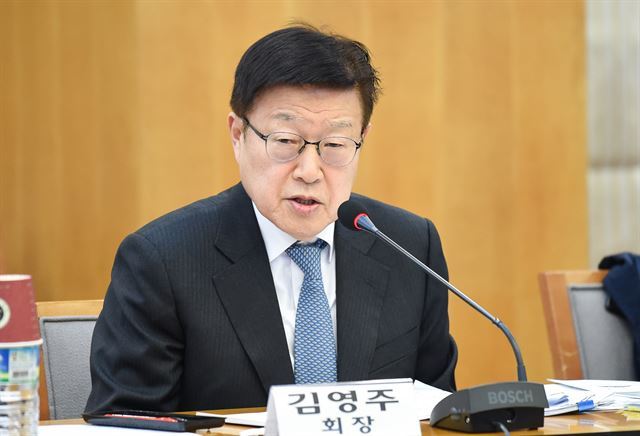Korea prepares trade measures to support exporters: KITA
By Shin Ji-hyePublished : June 10, 2020 - 15:41

As the private and public sectors join hands to increase trade during the COVID-19 pandemic, South Korean exporters are expected to see wider access to trade financing, as well as increased cargo shipments and fast-track entry procedures for major trading partners.
At the forefront of these efforts is the Korea International Trade Association, which recently surveyed 722 exporters to better understand their concerns and draw up policy suggestions for the government.
According to the survey, companies identified their biggest challenges in the wake of COVID-19 as a drop in overseas orders (61.6 percent); restrictions on human movement, including restrictions on immigration (52.1 percent); and logistics difficulties (33.8 percent). They called on the government to help “pioneer overseas markets” (58.2 percent), expand trade financing (29.9 percent) and “support digital economy and innovative growth” (18 percent).
Multiple answers were allowed.
Based on KITA’s survey and suggestions from 17 local governments, the Trade Ministry announced Wednesday its emergency support plans for exporters during a meeting presided over by Prime Minister Chung Sye-kyun.
The government plans to establish a program to expedite support for companies encountering liquidity problems and to provide 134 trillion won ($112 billion) in trade financing in the second half of this year. A total of 717.1 billion won will be invested in the third supplementary budget, the ministry said. This will allow the government to extend the maturity of loans for exporters, reduce insurance and guarantee fees, and enable the early monetization of export bonds.
The government also plans to expand the Korea-China fast-track system to include ASEAN countries and to increase the number of charter flights for cargo. In April, Seoul and Beijing agreed on a fast-track system to guarantee efficient business travel between the two countries. The Chinese government had imposed sweeping restrictions on foreigners entering the country a month earlier.
“It is very welcoming that the government has listened to the voices of the trade industry and actively reflected them in export support measures,” said KITA Chairman Kim Young-ju after the meeting.
“Due to Korea’s high dependence on trade, the government and the private sector should work together to catch up with the global paradigm of changing to no-contact industries.”
By Shin Ji-hye (shinjh@heraldcorp.com)
At the forefront of these efforts is the Korea International Trade Association, which recently surveyed 722 exporters to better understand their concerns and draw up policy suggestions for the government.
According to the survey, companies identified their biggest challenges in the wake of COVID-19 as a drop in overseas orders (61.6 percent); restrictions on human movement, including restrictions on immigration (52.1 percent); and logistics difficulties (33.8 percent). They called on the government to help “pioneer overseas markets” (58.2 percent), expand trade financing (29.9 percent) and “support digital economy and innovative growth” (18 percent).
Multiple answers were allowed.
Based on KITA’s survey and suggestions from 17 local governments, the Trade Ministry announced Wednesday its emergency support plans for exporters during a meeting presided over by Prime Minister Chung Sye-kyun.
The government plans to establish a program to expedite support for companies encountering liquidity problems and to provide 134 trillion won ($112 billion) in trade financing in the second half of this year. A total of 717.1 billion won will be invested in the third supplementary budget, the ministry said. This will allow the government to extend the maturity of loans for exporters, reduce insurance and guarantee fees, and enable the early monetization of export bonds.
The government also plans to expand the Korea-China fast-track system to include ASEAN countries and to increase the number of charter flights for cargo. In April, Seoul and Beijing agreed on a fast-track system to guarantee efficient business travel between the two countries. The Chinese government had imposed sweeping restrictions on foreigners entering the country a month earlier.
“It is very welcoming that the government has listened to the voices of the trade industry and actively reflected them in export support measures,” said KITA Chairman Kim Young-ju after the meeting.
“Due to Korea’s high dependence on trade, the government and the private sector should work together to catch up with the global paradigm of changing to no-contact industries.”
By Shin Ji-hye (shinjh@heraldcorp.com)



![[Exclusive] Korean military set to ban iPhones over 'security' concerns](http://res.heraldm.com/phpwas/restmb_idxmake.php?idx=644&simg=/content/image/2024/04/23/20240423050599_0.jpg&u=20240423183955)

![[Graphic News] 77% of young Koreans still financially dependent](http://res.heraldm.com/phpwas/restmb_idxmake.php?idx=644&simg=/content/image/2024/04/22/20240422050762_0.gif&u=)



![[Pressure points] Leggings in public: Fashion statement or social faux pas?](http://res.heraldm.com/phpwas/restmb_idxmake.php?idx=644&simg=/content/image/2024/04/23/20240423050669_0.jpg&u=)










